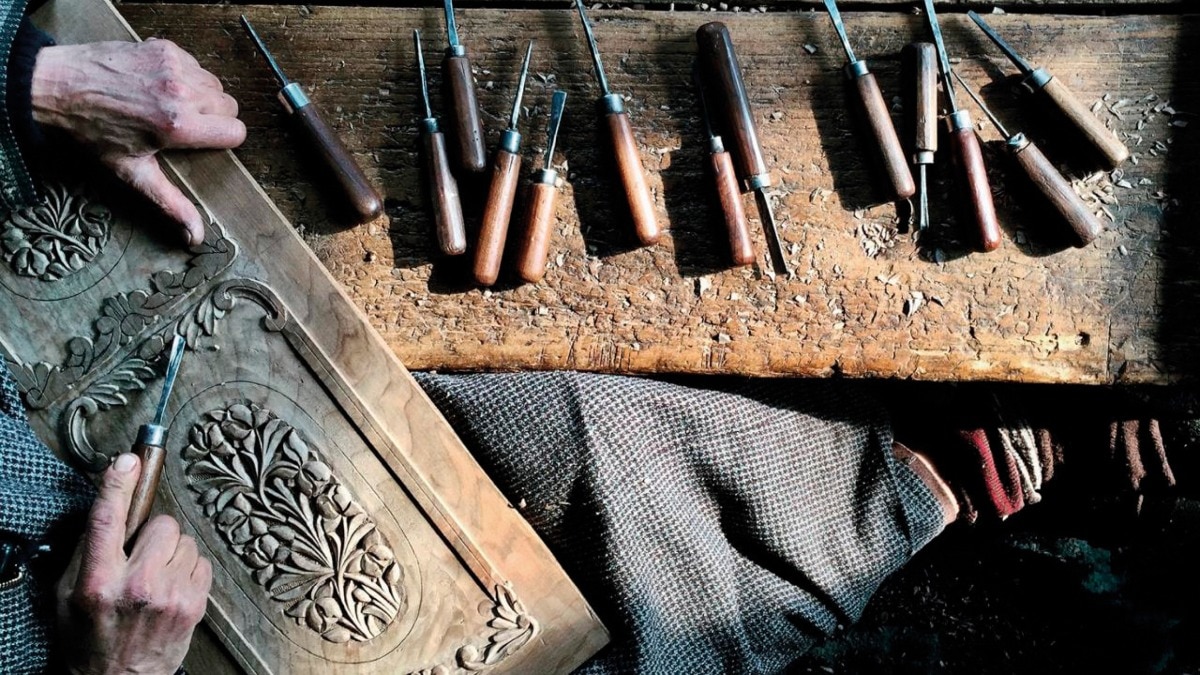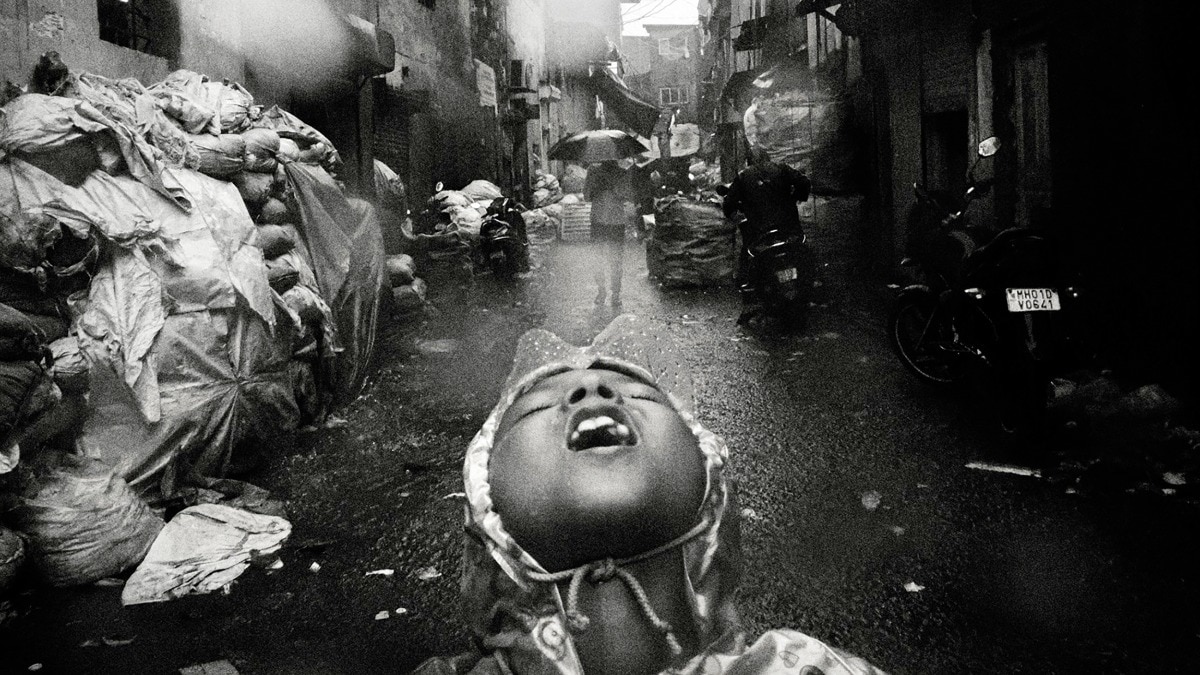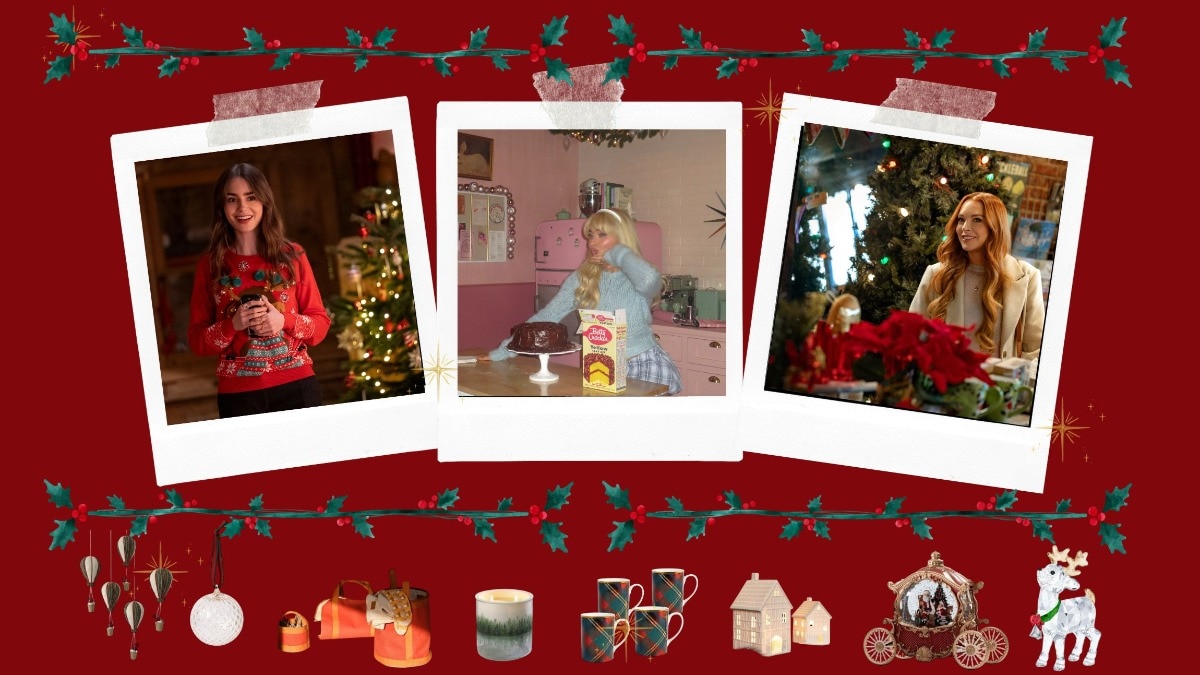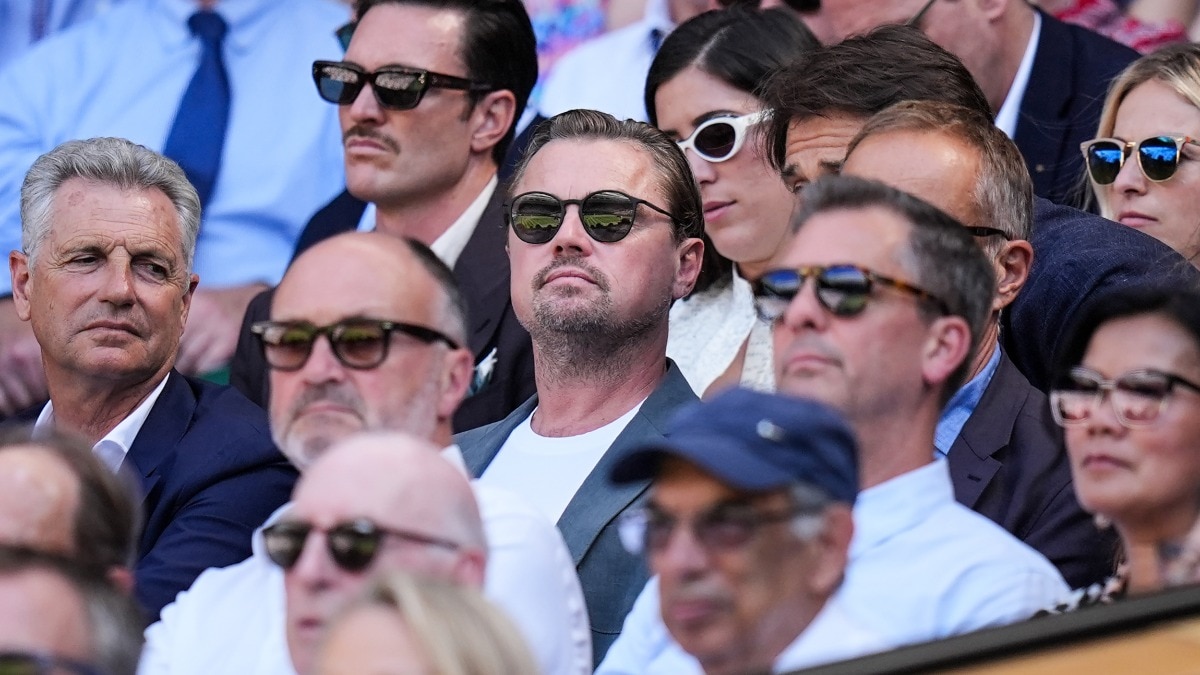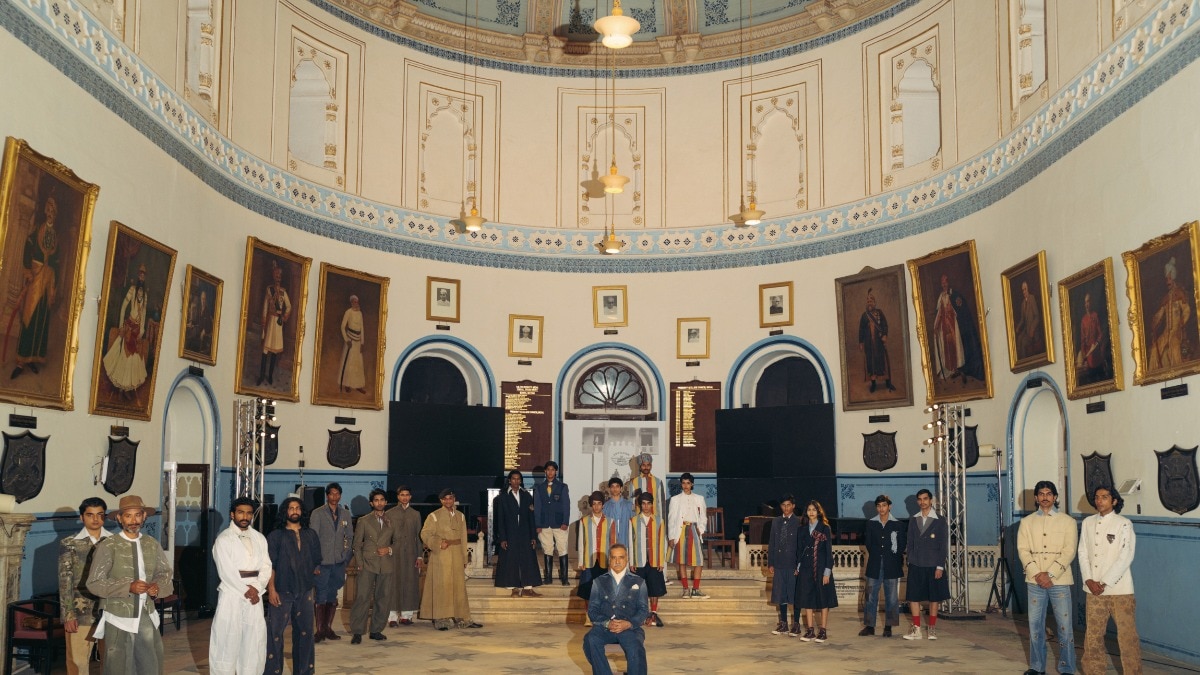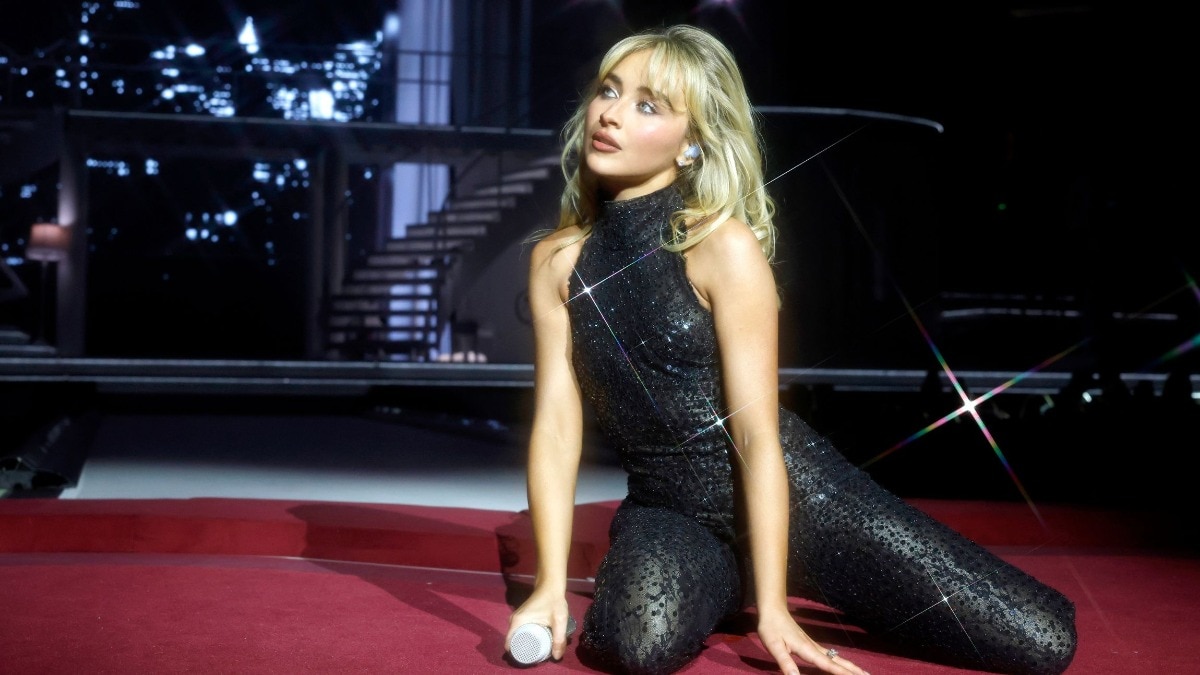"You don't find your purpose, your purpose finds you."—Robin Sharma
Bazaar India spoke to the best-selling author about his journey so far, normalising mistakes, and stumbling our way to our best life.


Adulting involves going through a whole gamut of questions and answers, in the hope that you achieve balance, learn to listen to your mind, body, and heart, and finally, are able to zero in on your purpose. The process is coupled with fear, a sense of being lost and confused, self-doubt, and more. And the truth is that we’re all always going to be seeking these answers, no matter what our age. Growth can be scary and uncomfortable, but stick to it and you’ll find a better, more compassionate, and empathetic version of yourself on the other side. And here’s another truth—it’s not as difficult as we perceive it to be—a lesson I learnt when I spoke to author and motivational speaker Robin Sharma.
From taking a leap of faith at the age of 25, to becoming a full-time writer who went on to train corporates on leadership and work-life balance, the best-selling author in an exclusive interview with Bazaar India, had a lot to say.
Harper’s Bazaar (HB): What was it like growing up? What were your career goals as a teenager or young adult?
Robin Sharma (RS): When I was a teenager, surprisingly, I wanted to be musician. I was also thinking about becoming a lawyer. But I didn't think about becoming a writer. I just sort of fell into that. And then in my 20s, I became a litigation lawyer, and was very unhappy doing it, because I felt I'd lost a sense of myself. So, I ended up self-publishing a book called The Monk Who Sold His Ferrari, and things unfolded after that.
HB: What made you take that leap from law to writing? And how did you know it was the right choice for you?
RS: Well, there's no point in being successful in the world, and being a failure with yourself. So, I would rather fail following my truth, my dreams, my longings and my instincts, than be successful in the world. I just trust my instinct, and I had this very strong pull to start writing books on personal growth and living a much better life.
HB: As a 23-year-old, I'm still navigating my way to finding my purpose. How does one do that, when you’re still exploring opportunities?
RS: You answered your own question—by exploring. We live in a world right now where we want easy answers. And we want our perfect life tomorrow. That's definitely a tick-tock world we live in. The human journey is about exploring, and what I'd say is you don't find your purpose, your purpose finds you. And sometimes you've got to take the wrong path. And sometimes it's 100 wrong paths to find the right path. Sometimes you have to go through many so-called failed relationships to find your perfect relationship. I have to ask you, are those failed relationships? Of course not. They all taught you something. You know, people come into our life for a reason, season, or lifetime. So, even with a career, sometimes someone tries to be an artist, but they become a barista. We stumble our way to our best life.

HB: What was your process of writing and what drove you?
RS: So, what drove me was the inner voice that told me I could write and help a lot of people. I think, ultimately, the purpose of a human life is to leave people better than we find them and to make a difference in other human lives. I think the secret of happiness is helpfulness. So that's the big driver for that book. And what was my process of writing? Well, I have this idea of the 5am club and I was fortunate to have discovered the incredible benefits of rising with the sun, early in my life, probably my early 20s. So, when I wrote The Monk Who Sold His Ferrari, I'd get up early, I would meditate and pray. After that, I would exercise—I think a sweaty, morning exercise for at least 20 minutes every day is a complete game changer. Then I would go for a nature walk. I find that walking in nature is incredibly inspiring, and stimulates my creativity. Then I'd come back, and I would sit down and I'd start writing and if I can get five hours of good writing, it's an excellent day for me.
HB: Were you ever scared when you made that career switch?
RS: I am scared all the time. Because I think if you're on a path of daily growth, then you're always going to be scared. I think what I'd say is, the illusion of safety is always more dangerous than doing uncomfortable things that will help you grow. So, yes, I was I scared. I'm scared a lot, but about writing the book and impacting people—I didn't have that much fear.
HB: Who was someone that you looked up to when you were in your 20s?
RS: My father has been a great influence in my life—every time I say that my mother says, 'What about me?' So I have to be truthful as well and say, my parents, I have amazing parents. It might surprise you, but my children are my heroes as well. I've also always had Nelson Mandela, Martin Luther King Jr., Mother Teresa, and Mahatma Gandhi, of course. And I look up to artists as well like Picasso, Van Gogh… Did you know Van Gogh in his entire lifetime, only sold two paintings, died poor and unknown? Talk about pursuing your calling and your craft. Look at that. And then he dies and becomes this great master?
HB: You're constantly putting out content, whether it's blogs, podcasts, videos, or books, for people to consume. So how do you stay consistent and disciplined?
RS: Well, it all starts with your habits. Of course, I'm not positive all the time. Yet, I'm consistent. Generally, I'm very enthusiastic, I see problems and I look for solutions to those problems. My energy is very high. Ultimately, it comes down to my habits. For example, this morning I got up, went to the gym, wrote in my journal, had two cups of coffee, and read something inspirational. I manage my evenings, I have a great pre-sleep ritual, and I'm a very good napper. I think napping is a secret productivity weapon. I eat well, fasting is huge for me. Fasting is unbelievable for energy and cognitive clarity. So, I think that’s important. I don’t have any energy vampires in my life—I surround myself with people who are interesting, committed, and positive and who are aligned with my values.
HB: Would you say it's a combination of both internal and external forces of energy?
RS: Totally. So, there's two elements to this; the number one is managing yourself and that's just having great habits. Not too much news, having a digital detox every week, good habits and that'll increase your inspiration or happiness and energy. And then, the people. We become our conversations. If we're around negative people, their energy dramatically, their emotions dramatically affect our emotions, right?
HB: So, what do you do on your low days?
RS: Well, I will read something uplifting. I will meditate and pray. I will write gratitude in my journal or my hopes for the next year, three years, five years, 10 years; that always uplifts me. I will go for a mountain bike ride or run. I will soak in an Epsom salt bath, I will listen to country music. So those are some of the things that make me feel better on a difficult day.

HB: What are three things you wish you would have known when you were in your 20s? And what advice would you give your 20-year-old self?
RS: The first thing I would say is failure is a failure only if you see it as a failure. Failure carries fortune and teaches us amazing lessons if we look for them. The second thing I wish I had known at 20 is that life has a very fair accounting system and the more you give to life and other people, the more blessings are returned to you. The third thing I wish I had known at 20 would be people will hurt you, so, don't be naive. Yet, do your best to forgive them, because hurt people hurt people. People who do painful things are in pain themselves. If I were to summarise it, I'd say trust yourself, you're wiser than you know. My biggest mistakes, were when I had an instinct but I listened to the people around me. Those have been the biggest mistakes in my life. I knew what to do. It might have seemed strange to everyone. I had a strong intuition or instinct about it, but the people around me convinced me I was wrong. And me, it led to a lot of problems. And the best decisions I've made were the ones that made no sense. But they were coming from my instinct, like writing The Monk Who Sold His Ferrari, and those seemingly unreasonable decisions. But they felt right. Those are the best decisions I've ever made.
HB: How do we normalise making mistakes in a workplace without beating ourselves up for it or without being really critical about making mistakes?
RS: I think you answered your own question, which is, we have to normalise the idea that failure, which is the highway to success. So, you look at an innovative company, and you look at a company that's in decline. You'll find that those in decline, there's no innovation, there's no failure. Failure is 'bad' in those companies. So there's no innovation, so they get left behind. As a human being, if you're looking at an investor, any good investor will tell you that the greater the risk, the greater reward. And if you're not willing to take risks, there will be no return. Well, in life, it's the same thing. You can watch television in a room for the rest of your life, you're not going to get bloodied or heartbroken. But you're not going to have any growth, and there's no adventure. And if you really want to grow as a person, you're going to be meeting new people, you're going to be exploring opportunities, you're going to be taking risks, which means you're going to be stumbling, and you're going to get hurt. And yet, if you stay with it, you're going to have an extraordinary life. You're gonna grow so much, and, eventually, you'll win.
HB: You have now worked with so many companies and you've given talks about leadership and balance. So, does a work-life balance really exists?
RS: Of course it does. One of the most powerful tools is a weekly schedule, because the things that get scheduled are the things that get done. And if you're very intentional about it, you'll see the results. Sunday morning, you take an hour, you plan your week, you put in your work commitments, but also your times to meditate, your family meals, your second-wind workout—everything goes in there, you get it out of your system, and then you do your best to follow the schedule. That's how you get work-life balance. The second way you get work-life balance, is you get really good at saying no. Another way is you use your digital devices as your servants and not your master. So people say, ‘Oh, I don't have time for working out,’ and if you actually shadowed them through their day, you would see that they're probably wasting 80% of their time on the screen.
HB: You mentioned that one of the ways to achieve that balance is to say no, but sometimes in toxic workplaces, it's really difficult to draw boundaries. So how does one navigate through a toxic workplace?
RS: I think the answer is pretty clear, right? I mean, who would spend their life in a toxic workplace? And then someone would say, ‘Well, it's not that easy. We have to make a living.’ You know what, there are lots of jobs out there. We live in a world where you can make a living as a YouTuber. We live in a world where you can start a blog and make a living. We live in a world where you can start a million-person movement with your smartphone. Why would you stay in a toxic workplace? I think it's a fear of being alone. Fear of not having any other opportunities. I think there's so much to do with the fear rather than just making that choice. It’s a fear of not doing better and a fear of making a mistake.
HB: How important is self-love and personal growth to also succeed at your workplace?
RS: So, in The Everyday Hero Manifesto, I make a connection that's not really talked about a lot, which is, your relationship with your work, your teammates, and your clients is a function of your relationship with yourself. If you are miserable, and you hate yourself, you're going to bring that into your workplace and deal with your customers that way. So, if you want to change the world, start by growing yourself. Another important connection is the heart-set. Everyone's talking about mindset which is important, of course. But don't we have an emotional life and a physical life and a spiritual life? So what I'm trying to do in my work is also talking about your emotional life—simply asking someone not only how's your peace of mind? but also, how's your peace of heart? So, as we upgrade our mindset, and as we purify our hearts, we remove the baggage of anger, sadness, and shame.
HB: The Everyday Hero Manifesto is a guide to soulful living. Why do you think we keep going back to certain books rather than just actually practising it every day?
RS: I think a lot of people practice it every day. I think a lot of people, take these books and install a morning routine, a nightly ritual, better productivity habits, better exercise habits, fasting, better eating, prayer, meditation, and better leadership at work. So that's the first thing. You can take The Everyday Hero Manifesto which has hundreds of ideas. Take the best two or three and start a habit. And don't just do it for two weeks because that's like saying, ‘I want to learn Italian' trying it for two weeks, and giving it up because you haven't mastered it. All changes are hard at first, messy in the middle, and beautiful at the end. An athlete who wants to be a world champion— does she practice for two weeks? She practices every day plus a rest day, year after year after year. And after 10 years, she's a world champion. So that's the way it is. If someone wants to read a self-help book and expect after a week or two, there's something magical going to happen...it's not. If you want to take a self-help book, instil those habits and practice it. Then come back, look at the next chapters, add those to your routine and start that process of implementing the ideas. Absolute consistency is the mother of mastery.
HB: What are you working on currently?
RS: So I have a new book that's due at the end of March. And what I would say about it is, it's a book for the times, meaning it's a book that will really speak to people in this post-pandemic world who are dealing with the things you mentioned, which are, wanting to be great at work and still enjoying life. I think we're different as a species right now. So the book is about how do you find greatness at work and how do you make the world a better place while doing good for yourself.
HB: What are your goals now?
RS: Well, my primary Mount Everest is the same. I just want to be an instrument of service to as many people as possible, and remind people of their primal genius, so that they're not stuck. I want to be a better cook and a better artist which means I have to work on my craft as a writer and speaker. And I just always want to be a better, more loving and helpful man.
HB: Do you think that people lean towards spirituality or personal growth at the lowest point in their life? And why do you think that is?
RS: Some are at their lowest point, because they're suffering and they're looking for a solution and a way out of their suffering—someone has an illness, someone has a divorce, someone has a bad breakup, someone loses their business. What happens? They're heartbroken. They're confused. And they need hope. So, that's when a lot of people turn to personal development. Having said that, for a lot of super successful people, a part of their winning formula is that they're curious. Einstein said, never lose your curiosity, right? So many of the best athletes, the best entrepreneurs, the best chefs, and I think many of the most interesting people, have a lust for learning and they always want to get better. So, what do they do? They turn to personal growth books for that insight, that nuance, that new habit, or new idea that helps them get to their next level. So I think it's both kinds of people who go to self-help—those in the valley of darkness, and those who are at the mountain top of success.

HB: What makes you happy?
RS: Well, my family makes me very happy. As I get older, I see that family is just right at the top of some of the list of things that make me happy. I love great food. I was in the north of Italy with my son three weeks ago and the best restaurant we ate at, was a rustic place with an amazing vibe, simple and fresh food. It was truly soul-satisfying. And while learning, travelling, nature, books and country music makes me happy, ultimately, knowing that I'm being helpful to other people, is the most fulfilling thing for me.

